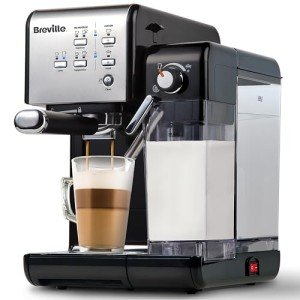The Top Reasons Why People Succeed In The Home Use Espresso Machines Industry

Home Use Espresso Machines: A Comprehensive Guide
Espresso machines have become a staple in lots of families as coffee lovers seek to reproduce café-quality brews in the convenience of their kitchen areas. The rise in appeal has actually caused a diverse market filled with different models, features, and prices. This article intends to offer an informative overview of home use espresso machines, helping readers browse their alternatives efficiently.
Comprehending Espresso Machines
Espresso machines work by requiring warm water through finely-ground coffee under high pressure, resulting in a concentrated coffee drink called espresso. There are numerous types of espresso machines classified based upon their brewing approaches and level of automation. The most common types include:
- Manual Espresso Machines: These require the user to manage the pressure and water circulation, enabling for a more hands-on coffee-making experience.
- Semi-Automatic Espresso Machines: These offer automatic control over water pressure, while the user manually grinds and tamps the coffee.
- Automatic Espresso Machines: With the push of a button, these machines instantly control the flow of water, making it much easier to brew espresso with consistent outcomes.
- Super-Automatic Espresso Machines: These all-in-one machines manage grinding, tampering, developing, and even milk frothing, making them ideal for users searching for convenience.
- Pill or Pod Machines: These use pre-packaged coffee pods to develop espresso with very little effort, however they restrict choice in developing methods and flavors.
Table: Comparison of Espresso Machine Types
| Type | Control Level | Ease of Use | Cleaning up Level | Suitable For |
|---|---|---|---|---|
| Manual | User-controlled | Moderate | High | Coffee perfectionists |
| Semi-Automatic | Partial automation | Moderate | Moderate | Home baristas |
| Automatic | Completely automated | Easy | Low | Hectic individuals |
| Super-Automatic | Fully automated | Really easy | Really low | Convenience seekers |
| Capsule/Pod | Completely automated | Extremely simple | Really low | Casual drinkers |
Secret Features to Consider
When choosing a home use espresso machine, it's vital to think about various functions that can substantially impact the quality of espresso and user experience.
- Pressure: Look for machines that provide a minimum of 9 bars of pressure, as this is considered optimum for developing espresso.
- Boiler Systems: Single vs. dual boiler systems identify temperature level stability and the ability to brew espresso and steam milk at the same time.
- Grinder: Integrated mills permit freshly ground coffee, which improves flavor. Think about machines with adjustable grind settings.
- Milk Frother: For those who take pleasure in cappuccinos and lattes, an integrated steam wand or automatic frother is crucial.
- Size and Design: Consider your cooking area space and aesthetic preferences. Machines can be found in various sizes, from compact to large setups.
- Rate: Home espresso machines can vary from a couple of hundred to several thousand dollars, so it's important to establish a budget before exploring alternatives.
Advantages and disadvantages of Home Use Espresso Machines
| Pros | Cons |
|---|---|
| Benefit of brewing coffee in your home | Preliminary investment can be high |
| Quality of espresso is often remarkable | Requires some ability, particularly with manual machines |
| Ability to experiment with flavors | Upkeep and cleaning can be labor-intensive |
| Can conserve money in the long run | Not all machines will match every coffee preference |
Maintenance and Cleaning Tips
Preserving an espresso machine is vital for prolonging its life and making sure constant brew quality. Here are some beneficial tips:
- Regular Descaling: Minerals from water can develop in the machine. Descale every 1-3 months, depending upon water firmness.
- Daily Cleaning: Rinse portafilters, baskets, and steam wands after each use to avoid coffee oils from building residue.
- Use Filtered Water: This can help in reducing mineral accumulation and enhance the taste of coffee.
- Replace Gaskets and Seals: These elements may wear gradually and needs to be replaced to preserve pressure and performance.
- Read the Manual: Each machine has specific care guidelines; following these will guarantee longevity.
Frequently Asked Questions About Home Use Espresso Machines
Q1: What is the very best budget espresso machine?The best budget espresso machine typically depends on specific needs, however designs like the DeLonghi EC155 or the Breville Bambino are popular amongst users for providing fantastic value. Q2: How long do home espresso machines normally last?With Espresso Machines Under £1000 , home espresso machines can last anywhere from 5 to 15 years, depending upon the quality of the machine and frequency of use. Q3: Can I make cappuccinos and lattes with any espresso machine?While most espresso machines can make cappuccinos and lattes, having a reputable
steam wand or frother is important for attaining the best milk texture.
Q4: Are super-automatic machines worth the investment?For those who prioritize convenience and quick developing, super-automatic machines can be worth the financial investment, though they might lack some customizability in brew strength and flavor. Q5: What kinds of coffee beans are best for espresso?While personal choice plays a function, beans labeled as" espresso "blends are normally roasted darker, producing rich flavors and a velvety texture when brewed.
Buying a home espresso machine can change the everyday coffee regimen into something unique, raising home brews to café quality. By comprehending the various kinds of machines, essential features to consider, maintenance needs, and weighing the
advantages and disadvantages, customers can make informed decisions that fit their private preferences. As visit my web page continues to grow, no matter the choice, every brew can be a tasty experience waiting to be appreciated.

